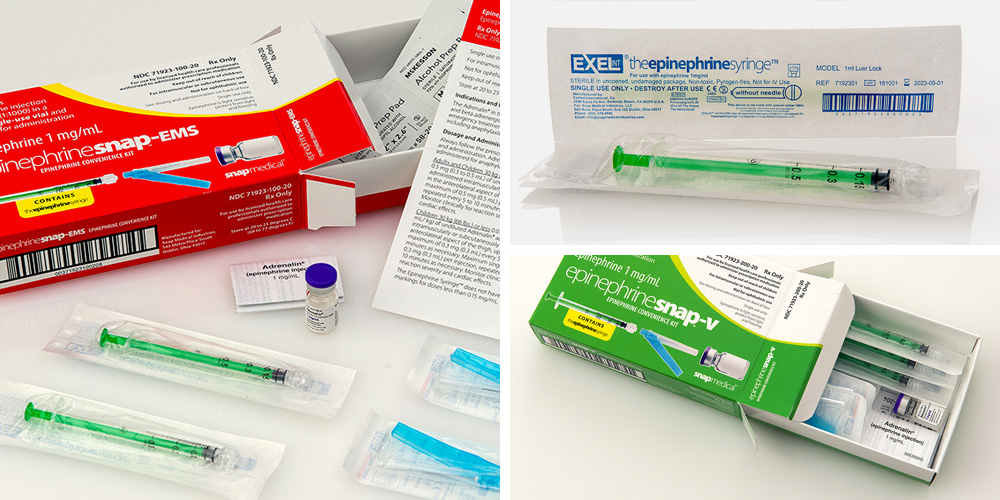In the world of emergency medicine, the ability to work quickly and effectively is crucial.
Minimize Your Cost, Maximize Your Time
Dr. Joel J. Nobel, creator of the crash cart or “Max cart” as it was originally named, set out to streamline lifesaving procedures with efficiency at the forefront of his mission.
His goal was to save time and concurrently to save lives.
He designed and patented the “MAX Cart” in 1965 with two key features: it was mobile and it contained the most common life-saving materials/drugs needed in an emergent situation.
Today, most crash carts include some or all of the following:
- Basic airway equipment including bag valve masks, oral and nasal airways, oxygen masks and nasal cannulas, Magill forceps
- Intravenous access equipment (or intraosseous) including angiocaths, IV tubing, and IV fluid
- Medications utilized in the treatment of cardiac arrest including epinephrine and amiodarone
- Medications utilized to treat cardiac dysrhythmias including adenosine, Cardizem, a beta-blocker (usually Lopressor®), and Atropine.
- Monitor equipment with a defibrillator or an AED
- Medications to treat allergic reactions such as EpinephrineSnap (R), EpiPens®, Solu-medrol®, and Benadryl® or other similar products (i.e. generics)
- Aspirin 81mg PO
- Nitroglycerin spray or 0.4mg tablets
***Note: Crash cart items and configuration of supplies can vary from hospital to hospital and practice to practice; Consult State DOH recommendations and JCAHO guidelines for your area.
Regardless of the specifics, that’s a lot of different drugs and products to keep track of.
And one of the biggest difficulties with maintaining these mobile units can be keeping an up-to-date inventory.
We recommend checking the expiration dates on all drugs/injectibles at the beginning of every month and replacing expired products or items that are missing because they have been used in an emergency.
We have even created a free downloadable crash cart log for your use with some of the most common crash-cart items listed. It can be customized to suit your needs, just like your orders.
At Salus Medical we have the ability to sell products in packs OR by each; so, if you have just one vial of ephedrine that needs replacing, we’ve got you covered. We can split larger packs into smaller amounts, so you can purchase products on an as-needed basis.
But again, before you are confident your cart is fully stocked, be sure to consult the governing body in your area for more specific requirements.
And contact your Salus Account Manager today to update those inventories!
‘E’ is Also for Epinephrine: Snap Medical
Custom Kits to Fit Practitioners’ Protocols

As a former critical care nurse, Founder and President Nancy Creadon created Snap Medical Industries with very specific intentions: to bridge the gap between what people in the healthcare industry need and what is available. She too understands the importance of efficiency in the world of emergency medicine
Creadon wanted to create a company to fulfill a need within the healthcare industry. She wanted to bring a cost-effective product to market that is affordable and accessible, and one that follows all regulations.
Hence, the Epinephrine Snap-V and Epinephrine Snap-EMS kits were created. These products were brought to market four years ago, because of the high costs of epinephrine auto-injectors for patients and practices alike.
Each kit contains the appropriate number of doses (vials) and Snap Medical Industries’ proprietory syringes with the exact markings for pediatric and adult doses.
The syringes are precisely marked to save time during an emergent situation and eliminate the possibility of misdosing.
The Snap-V kit contains 3 doses and 3 syringes; the Snap-EMS kit contains 2 doses and 2 syringes. Snap Medical chose these doses because they are the required number of doses of epinephrine a practitioner should have available in the case of anaphylaxis.
In the beginning, there was only the Snap-V product available, but at the request of EMS workers, the Snap-EMS kit was born, which contains only 2 doses and is the standard number of doses required for EMS personnel.
There was a need in the market, because of the crazy-high prices of Epipens and their generic counterparts, and Snap Medical was there to fill that need. We love that our vendors are searching for real solutions in healthcare and keep the practitioners in mind when doing so.
They have received many requests for NARCAN emergency kits, so that is a direction the company may pursue in the future.
